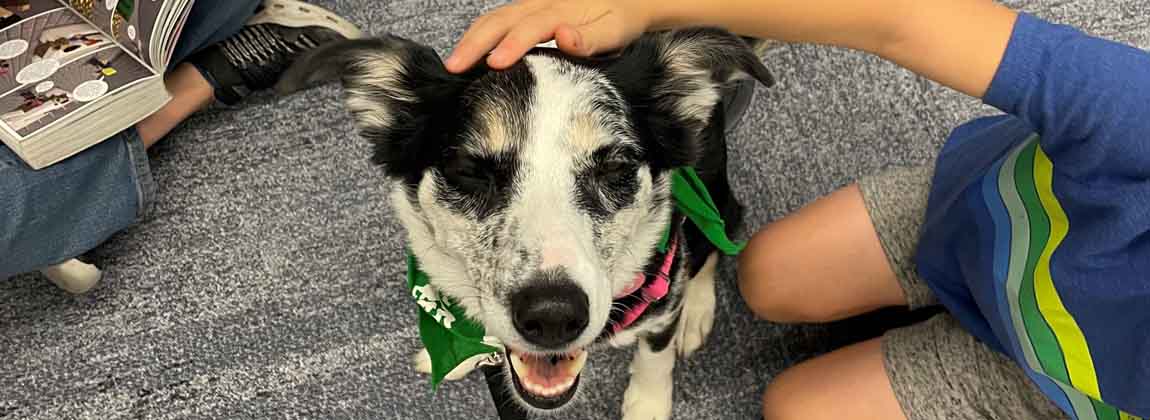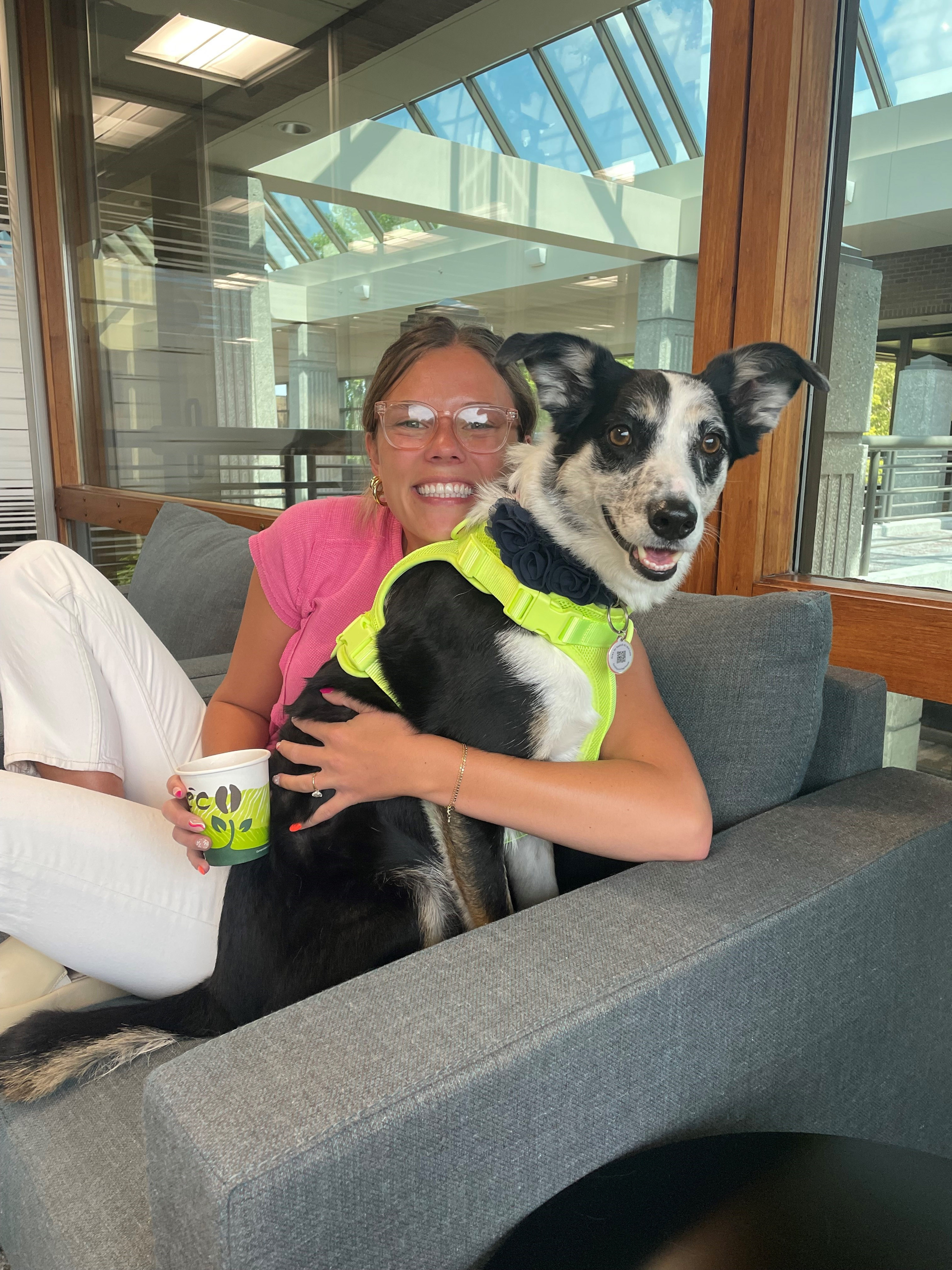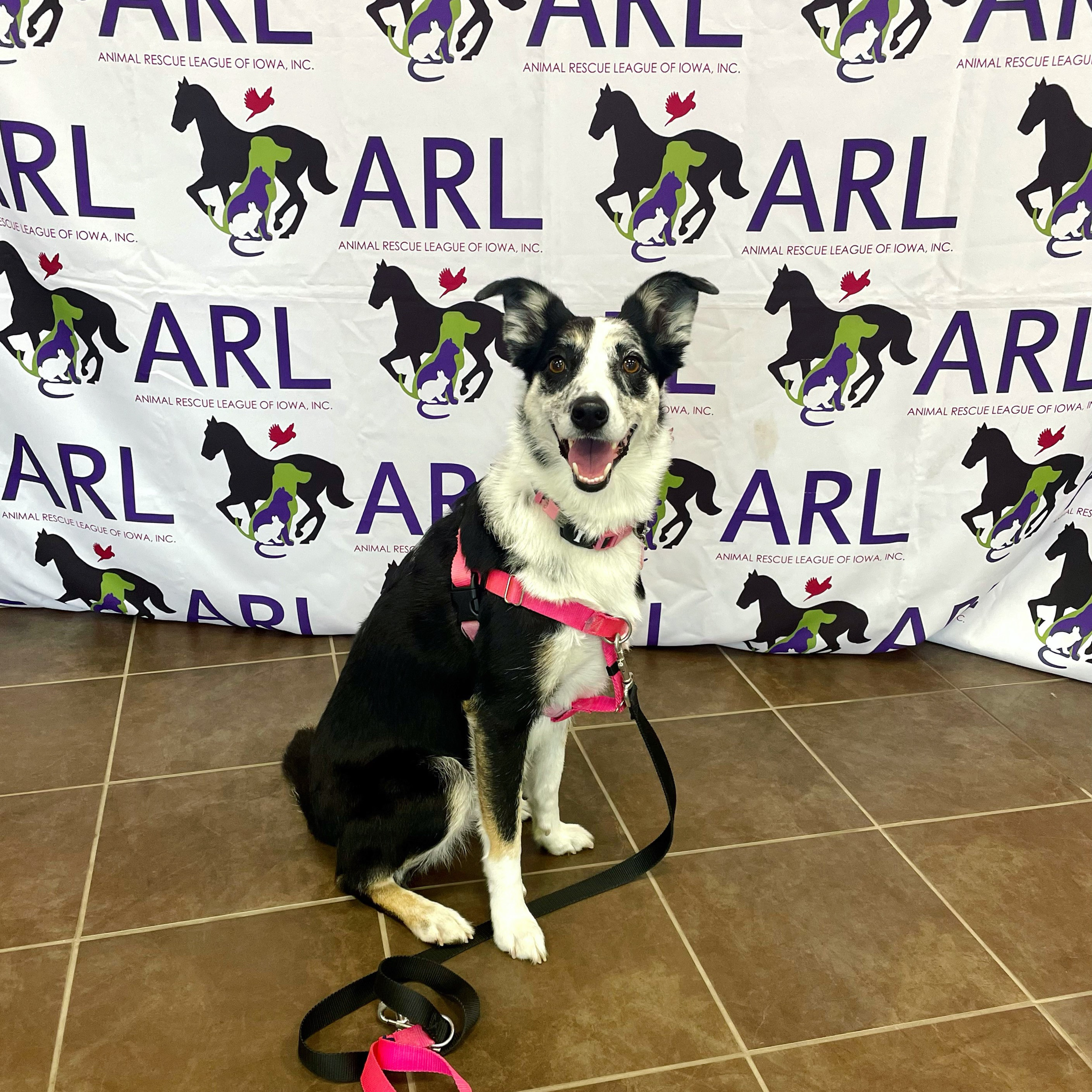Unleashing Pawsitive Vibes: A Deeper Look at Therapy Dogs

Two Greater Des Moines Partnership Fellows look at the differences between therapy and service dogs and discuss getting involved with the Animal Rescue Leage of Iowa’s (ARL’s) TheraPets program.
Service Dogs
Service dogs are trained specifically to work with a disabled individual. According to the Americans with Disabilities Act (ADA), these disabilities could be mental, physical, sensory, psychiatric or intellectual. Service dogs may be trained to provide guidance, protection, reminders, and alerts and emotional support.
Because service dogs play a vital role in their handler’s life, they are granted access to public places where animals may not be allowed. These rights would extend to housing and public transport. Service dogs would be exempt from any pet fees that are typically required.
Therapy Dogs
Unlike service dogs, therapy dogs are not trained for a specific handler. Therapy dogs may volunteer along with their owner at hospitals, schools, nursing homes, hospices and other clinical settings. Therapy dogs remain calm and are not affected by sudden noises or movements. These dogs are comfortable being handled in a social setting.
Since therapy dogs are not the same as service dogs, they do not have the same legal rights to access public spaces. There is no national regulation for therapy dogs. A nonprofit organization will typically train, insure and license the therapy dogs.
Read more about the differences between service dogs and therapy dogs akc.org.

Benefits of Therapy Dogs
Mental Health
-
Increases the release of mood-elevating hormones such as serotonin, prolactin, and oxytocin.
-
Decreases anxiety and depression levels, providing an escape or distraction from individuals in distress.
-
Increases mental stimulation and provides comfort, reducing loneliness.
-
Increases a person’s self-esteem, encouraging more positive interactions.
Physical Health
-
Reduces blood pressure and improves cardiovascular health.
-
Reduces the number of medications that may be required and decreases physical pain.
-
Causes the person to relax more and aids in social interactions.
-
Releases hormones, elevating a person’s mood.
-
Increases a person’s mobility and improves their motor skills.
If you would like to read more about the benefits of therapy dogs, please visit uclahealth.org.

Qualification
There are quite a few qualifications necessary to become a therapy dog team. These qualifications ensure a safe and enjoyable experience for both the therapy dog team and the party receiving the therapy.
-
The therapy dog must have attained adulthood. Puppies are continuously developing, and it is important to understand the personality and demeanor of the dog once it has reached adulthood to be sure it is able and willing to provide therapy work.
-
The owner/handler must be willing to continuously work with the dog and be present at community events while being attentive to the dog and its body language.
-
The dog and handler must go through obedience training. The duration of training and the types of classes are determined by the owner and the trainer.
-
Many organizations require that the dog pass the Canine Good Citizen (CGC) test, which evaluates basic obedience and handler/dog relationship.
-
Depending on where the therapy team is practicing, it may be required to take a therapy dog assessment.

Personal Experience
Daykota and her dog, Bentlee Rose, are an active therapy dog team in Greater Des Moines (DSM). Bentlee is a six-year-old Australian Shepard/Blue Heeler mix. Daykota got Bentlee when she was just six weeks old. There were no intentions of Bentlee being a therapy dog in the beginning. Daykota took Bentlee to a puppy class as soon as she had all her necessary shots. Bentlee loves having a job and so they continued obedience classes until Daykota stumbled upon the ARL Therapets program. Since joining the program, Bentlee and Daykota have visited an adult living home monthly, have visited local high schools when trauma or stress is present, and are now visiting children at the library while they learn to read. Bentlee is also a crisis therapy dog at Farm Bureau Financial Services and makes frequent visits into the office and is on call to provide therapy to client/members after a loss.
Daykota loves being part of a therapy dog team because it allows her to give back to the community and spend time with her best four-legged friend. Bentlee loves being a part of a therapy dog team because she gets to meet new people, make them smile, and gets lots of treats in return.
If you are looking for information or wanting to get involved with the ARL Therapets program, please visit arl-iowa.org.
Looking for opportunities as a young professional in Greater Des Moines (DSM)? The DSM Fellowship Program is the preeminent professional development initiative attracting, developing and retaining a diverse community of top-tier graduates to the region. You can also connect with other young professionals and emerging leaders through Young Professionals Connection (YPC) events and committees.
Daykota Freel and Jasmine Stout
Daykota Freel and Jasmine Stout are fellows currently participating in the Greater Des Moines Fellowship Program. Daykota is an Instructional Designer at Farm Bureau Financial Services and Jasmine is a Technology Development Associate at Wellmark Blue Cross and Blue Shield.